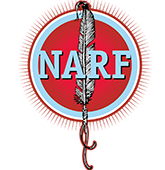Alaska Requests More Time to Consider Position in ICWA Dispute
“The state has requested an additional 30-day extension because the administration needs additional time to determine its response to the issues raised in the petition and the amicus brief,” Jacqueline Schaffer, an assistant attorney general with the Alaska Department of Law, told KNBA. Read the March 18 article at the Indianz.com website. Related links: March … Read more
